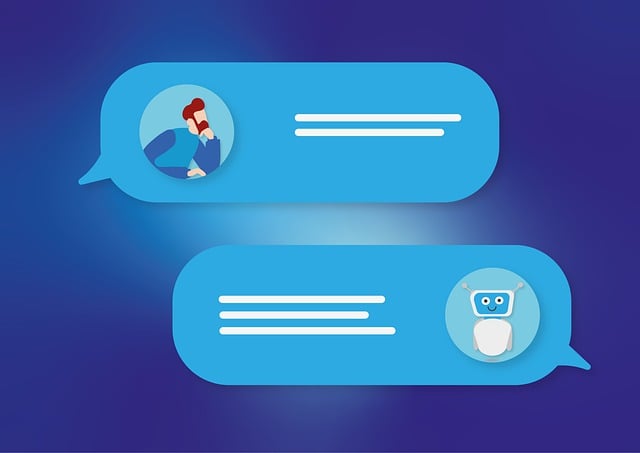AI chatbots are reshaping the e-commerce sector by offering 24/7 support, personalized product recommendations, and efficient order processing through natural language processing (NLP). They enhance customer experiences, streamline business operations, and drive sales growth by understanding user queries, resolving issues swiftly, and leveraging data insights for targeted marketing. Despite challenges in achieving human-like language understanding, advancements in NLP promise to revolutionize e-commerce customer engagement.
“Unleash the potential of AI chatbots in transforming the future of ecommerce! This comprehensive guide explores the dynamic interplay between Artificial Intelligence and Natural Language Processing (NLP), highlighting their pivotal roles in enhancing customer experiences. From understanding the intricacies of AI chatbots to uncovering the benefits they bring to ecommerce businesses, this article offers valuable insights. We delve into the challenges faced and envision the exciting prospects that lie ahead for these intelligent assistants in the retail sector.”
- Understanding AI Chatbots and Their Role in Ecommerce
- The Power of Natural Language Processing (NLP) in Chatbot Functionality
- Benefits of Implementing AI Chatbots for Ecommerce Businesses
- Challenges and Future Prospects of AI Chatbots in the Retail Sector
Understanding AI Chatbots and Their Role in Ecommerce

AI chatbots are transforming the landscape of ecommerce by revolutionizing customer interactions and enhancing overall user experiences. These intelligent virtual assistants leverage natural language processing (NLP) to understand and respond to customer queries in real-time, much like human conversations. By integrating ai chatbots for ecommerce, businesses can provide 24/7 support, instantly address product inquiries, and even facilitate purchases with minimal effort from the customer.
In the bustling world of online retail, ai chatbots offer a competitive edge by streamlining order processes, offering personalized recommendations, and gathering valuable customer insights. They can guide shoppers through complex product catalogs, answer frequently asked questions, and provide post-purchase assistance, fostering stronger relationships between brands and their customers.
The Power of Natural Language Processing (NLP) in Chatbot Functionality

The Power of Natural Language Processing (NLP) in Chatbot Functionality
Natural Language Processing (NLP) is a cornerstone of modern AI chatbots, enabling them to understand and interpret human language with remarkable accuracy. By leveraging NLP algorithms, AI chatbots can process user queries, discern intent, and generate contextually relevant responses. This enhances the conversational experience, making interactions feel more natural and intuitive—crucial for maintaining user engagement in dynamic environments like ecommerce.
In the context of AI chatbots for ecommerce, NLP facilitates a wide range of functionalities, from product recommendations based on user preferences to handling customer service inquiries efficiently. By understanding not just words but also sentiment and context, these chatbots can provide personalized assistance, resolve issues swiftly, and even offer tailored marketing insights. This not only improves customer satisfaction but also drives sales by creating a seamless and engaging shopping experience.
Benefits of Implementing AI Chatbots for Ecommerce Businesses

Implementing AI chatbots for ecommerce offers a multitude of benefits, enhancing customer experience and driving business growth. These advanced tools can provide 24/7 customer support, instantly addressing client queries about product availability, pricing, or order tracking. By automating routine inquiries, businesses can free up human agents to handle more complex issues, thereby improving overall efficiency.
Moreover, AI chatbots for ecommerce can personalize shopping experiences through data-driven interactions. They analyze user behavior and preferences to offer tailored product recommendations, increasing the likelihood of conversions. With their ability to process vast amounts of customer data in real time, these chatbots contribute to targeted marketing strategies, fostering stronger customer relationships and boosting sales.
Challenges and Future Prospects of AI Chatbots in the Retail Sector

AI chatbots are rapidly transforming the retail landscape, offering 24/7 customer support, personalized product recommendations, and efficient order processing in the realm of e-commerce. However, their integration in the retail sector is not without challenges. One significant hurdle is achieving human-like understanding and generation of natural language, especially when dealing with complex customer queries or nuanced language.
Looking ahead, advancements in Natural Language Processing (NLP) hold immense promise for overcoming these hurdles. Future AI chatbots are expected to leverage sophisticated NLP algorithms to better comprehend context, intent, and sentiment, thereby delivering more accurate responses. Enhanced conversational abilities will foster deeper customer engagement, while seamless integration with existing retail systems can streamline operations and improve overall efficiency, revolutionizing the customer experience in e-commerce.
AI chatbots are transforming the ecommerce landscape, offering enhanced customer experiences through natural language interactions. By leveraging NLP, these chatbots provide 24/7 support, answer queries swiftly, and guide users to purchases efficiently. The benefits are clear, from improved customer satisfaction to increased sales conversions. However, challenges like maintaining contextual understanding and ensuring ethical data use remain. As technology advances, AI chatbots will continue to evolve, promising an even more personalized and seamless shopping journey for ecommerce businesses and their customers alike.
